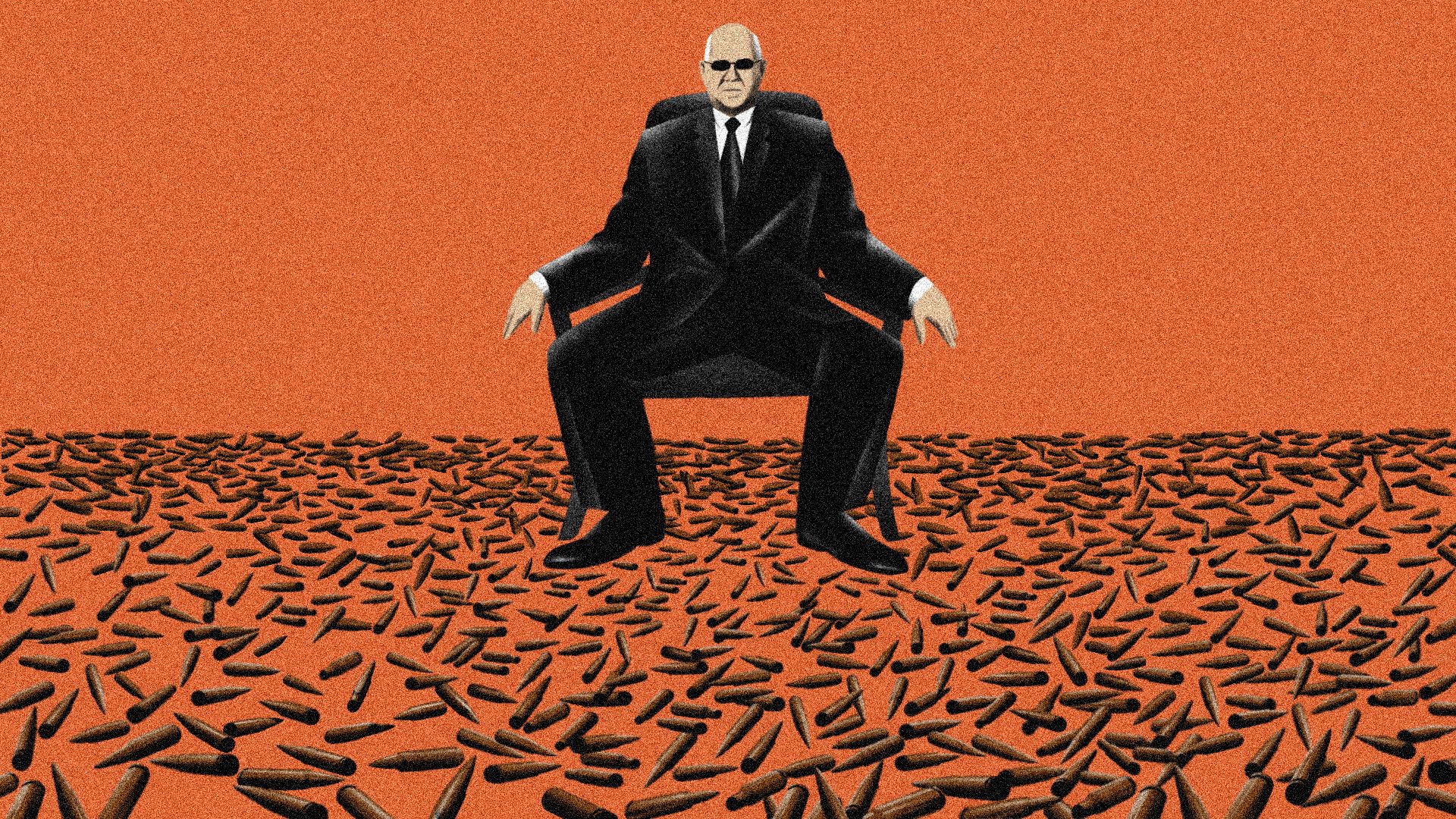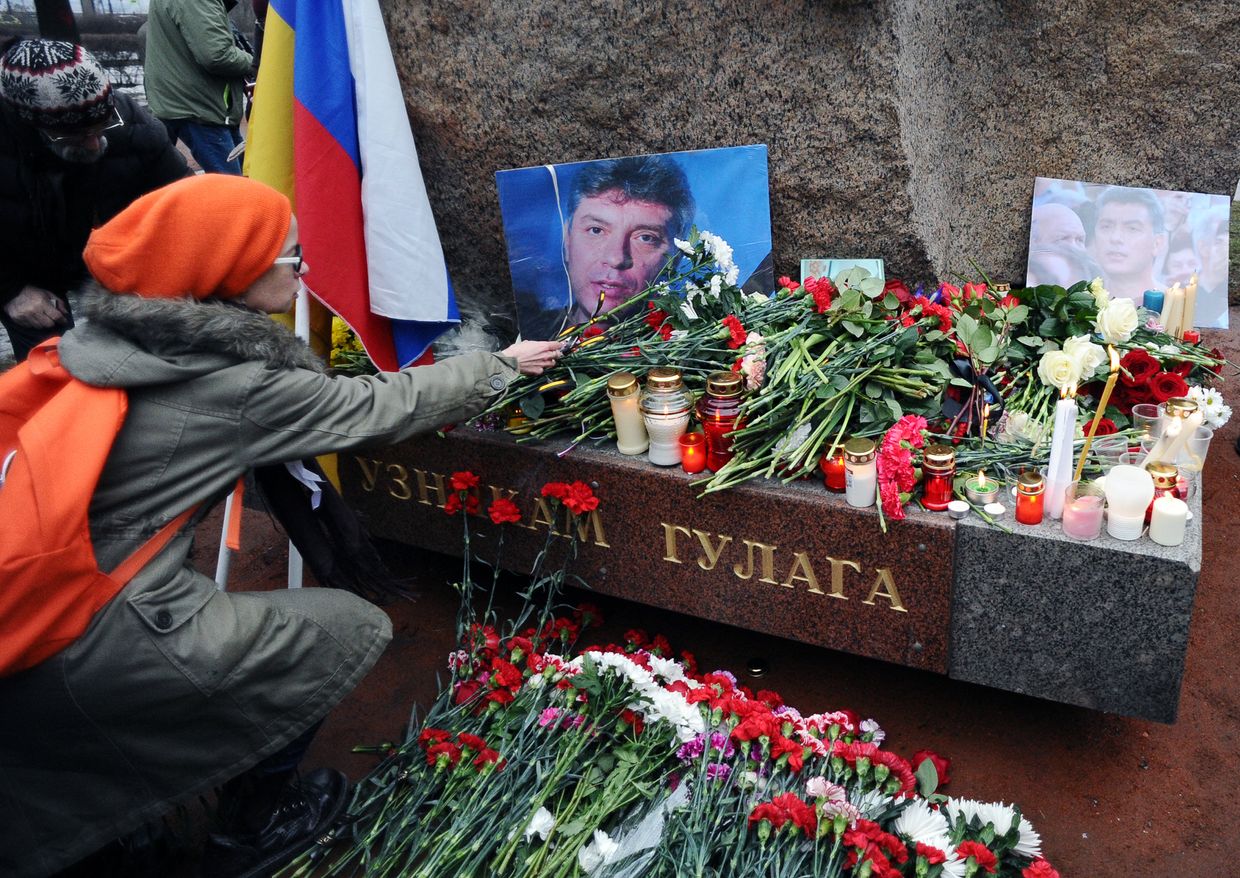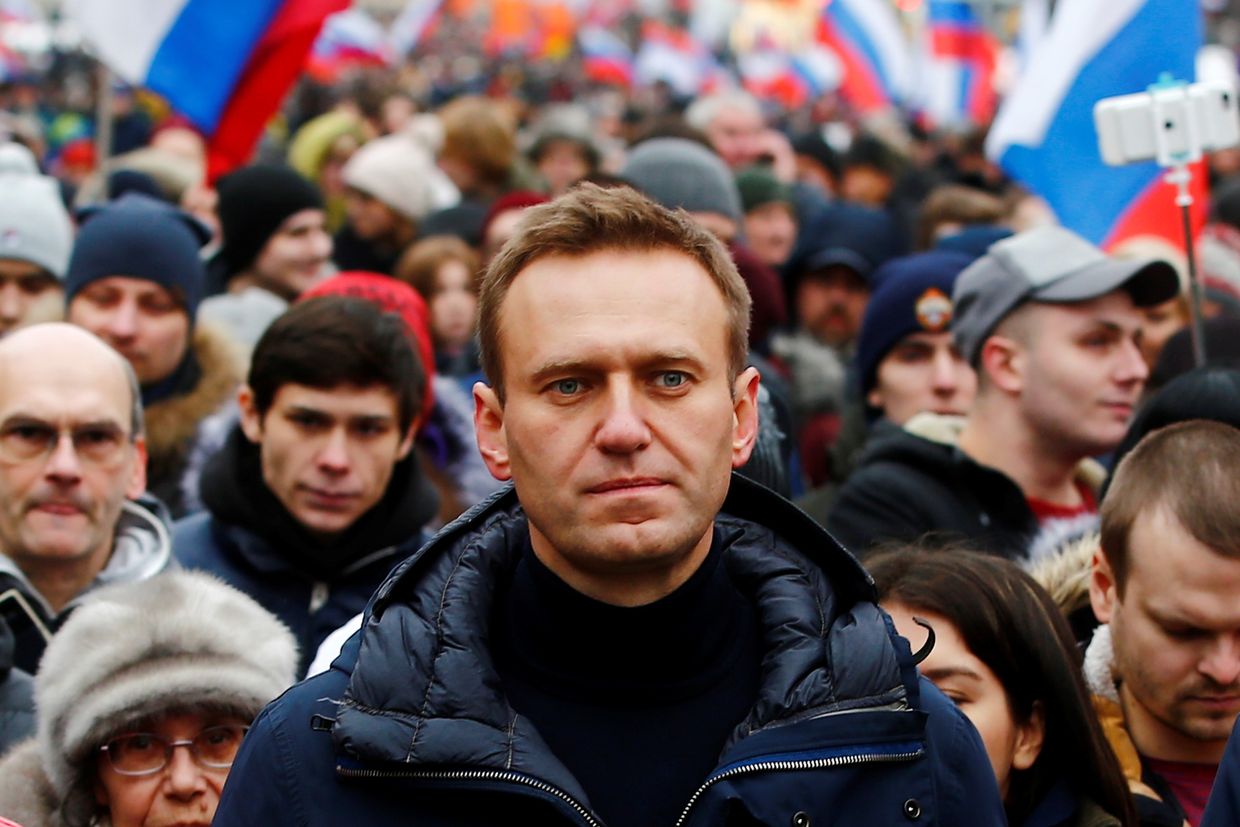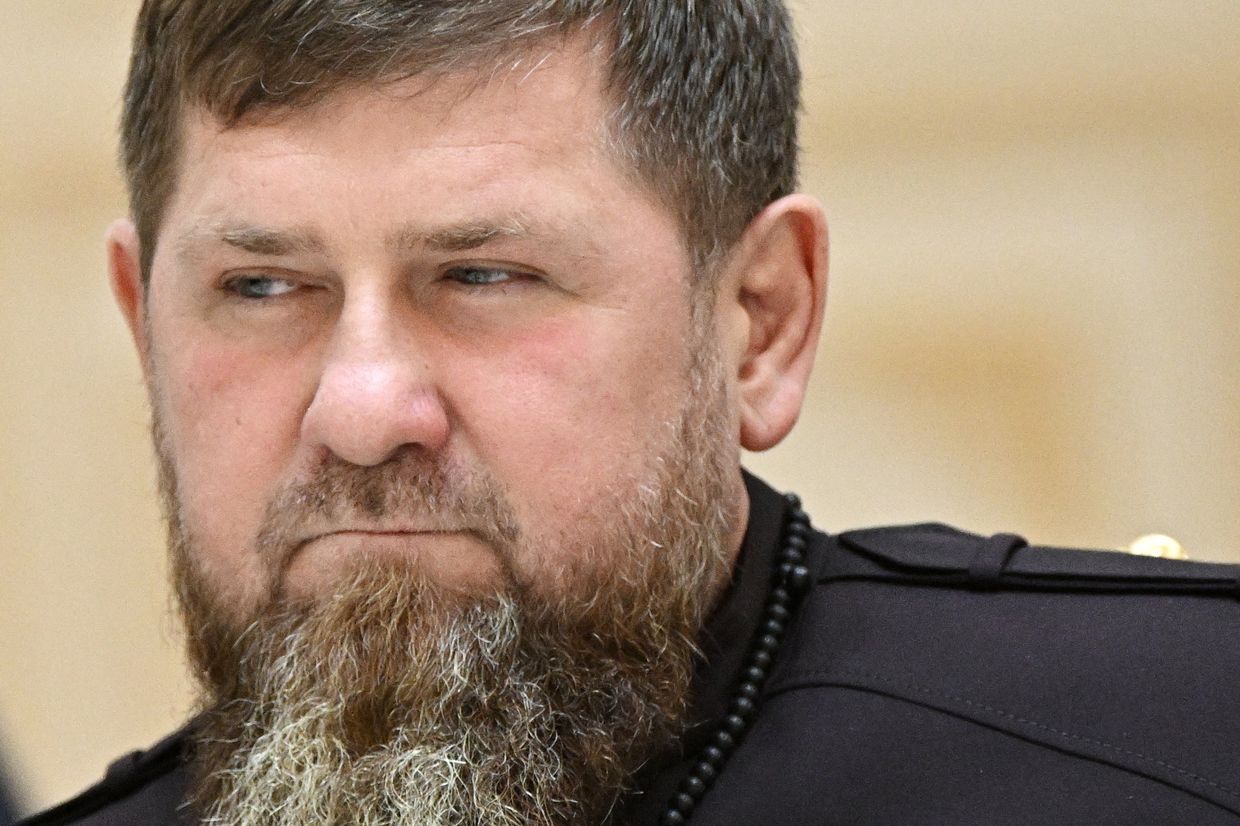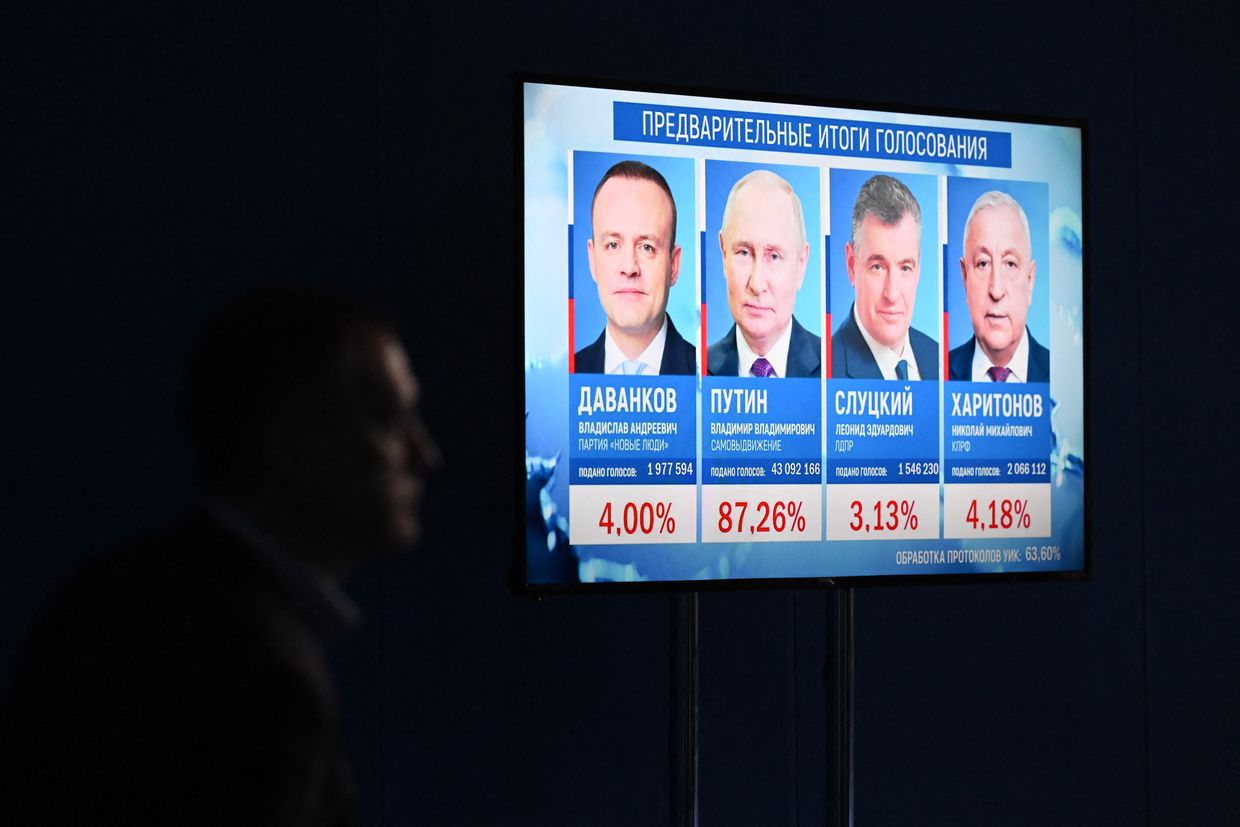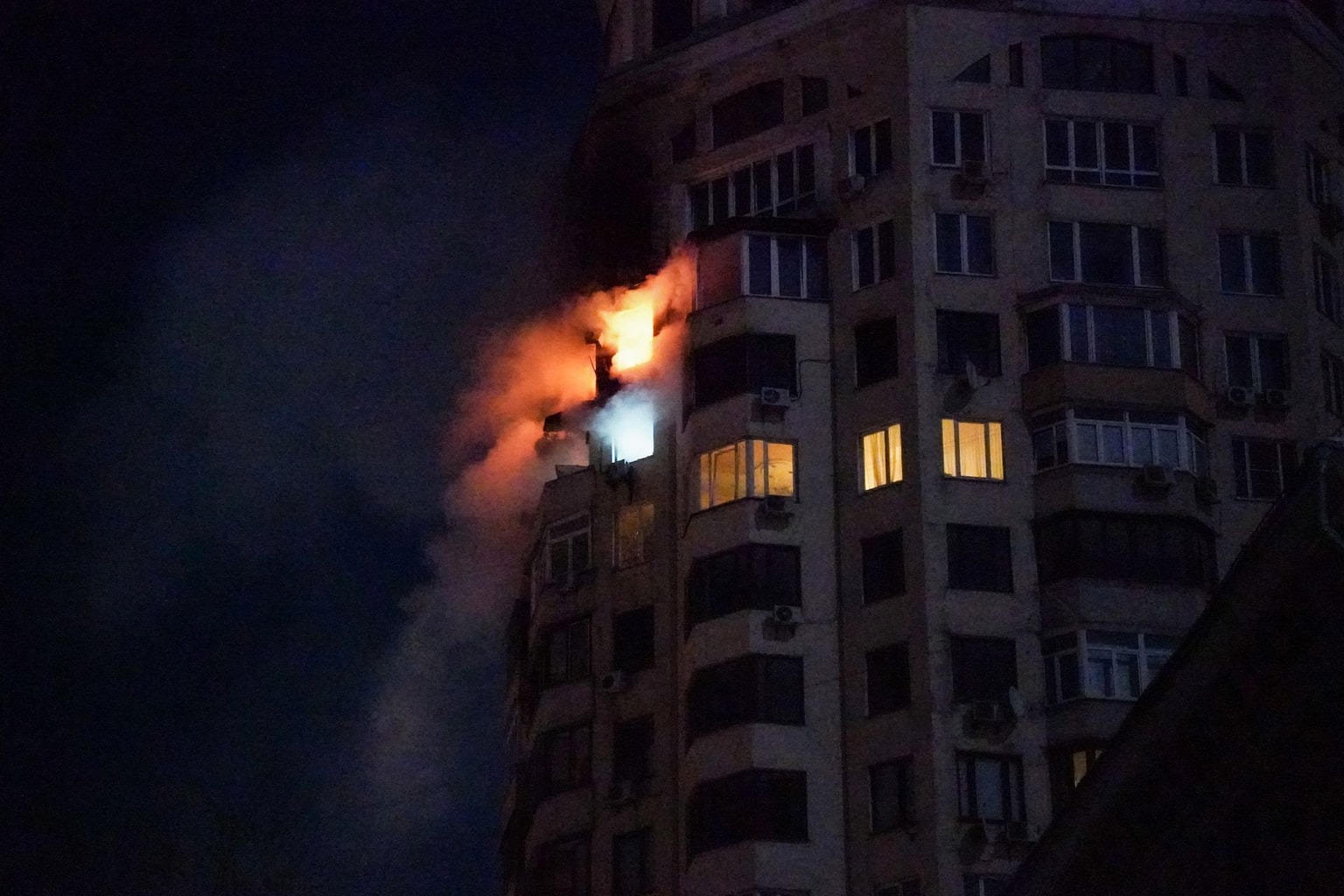Russia's digital Iron Curtain descends as Kremlin chokes remaining internet freedoms

Illuminated skyscrapers at night in the Moscow International Business Center (Moscow City) district of Moscow, Russia, on Oct. 21, 2021. (Elena Chernyshova / Bloomberg via Getty Images)
Three and a half years into its all-out war against Ukraine, the Kremlin is waging a parallel battle at home — this time against internet freedom.
The Russian authorities are tightening their digital grip and rolling out sweeping new measures to keep people online in check.
Russian authorities' efforts to block calls via the Telegram and WhatsApp messengers have been going hand in hand with the creation of a Kremlin-controlled "national messenger" called Max, intended to replace foreign equivalents.
"(The Kremlin) has now matured to the point of imposing total control over people's conversations," Russian columnist Sergei Parkhomenko told the Kyiv Independent.
"Before, there were concerns that people might protest, and the authorities would have to somehow explain themselves — but now there's no need to explain anything to anyone: there is only one answer — 'There is a war going on, and therefore you, citizens, no longer have any rights."
Parkhomenko believes that "this is why Putin started the war — to gain the ability to harden his rule more and more, and thus guarantee his hold on power for eternity (or so he hopes)."
Analysts say the latest efforts to stifle internet freedom are a logical step in the regime's evolution towards totalitarianism. The Kremlin is seeking to emulate China's Great Firewall, a comprehensive censorship system that Beijing has used for decades to crack down on dissent online.
The Russian authorities and VK, the company that developed Russia's Max messenger, did not respond to requests for comment.
Blocking social networks
Russia's efforts to introduce China-style internet censorship began before the full-scale invasion.
In 2014, following the start of Russia's war against Ukraine, Kremlin-friendly companies took control of Vkontakte (VK), Russia's largest social network, and its owner, Pavel Durov, left the country amid government pressure.
Roskomnadzor, Russia's agency tasked with controlling and censoring mass media, began blocking Durov's Telegram messenger in 2018 after the messenger refused to provide encryption keys to the Federal Security Service (FSB), citing a terrorism investigation. Durov said then that it was impossible technologically and that giving the keys to the FSB would imply changing its encryption mechanisms and enabling the Kremlin to censor the messenger.

However, the agency lifted the ban on Telegram in 2020.
The reasons for the change in the agency's position are unclear.
The attempt to block Telegram was followed by large-scale protests, and Roskomnadzor's efforts proved to be ineffective due to technological issues.
Durov visited Russia more than 50 times from 2014 to 2021, including on the day when the ban on Telegram was lifted, according to Russia's IStories investigative journalism project.
The report triggered speculation that Durov could have reached a deal with the Russian authorities.
After the start of Russia's full-scale invasion in 2022, the country's authorities also banned Facebook and Instagram, citing the platforms' policies of not censoring calls for violence against Russian President Vladimir Putin and Russian soldiers. Meta, the owner of the platforms, eventually backed down and banned such calls, but they were blocked anyway.
In 2024, Roskomnadzor also started slowing down access to YouTube, citing the video hosting service's decisions to block Russian propaganda channels and its refusal to block anti-Kremlin content.
In March 2025, there were also disruptions in Telegram's operations in Russia, and it was banned in the country's Chechnya and Dagestan regions.
In August 2025, Roskomnadzor started blocking calls on Telegram and WhatsApp.
Roskomnadzor claimed the apps have become "the main services used to defraud and extort money, and to involve Russian citizens in sabotage and terrorist activities."
Analysts believe that this claim is just an excuse.
"This has nothing to do with internet fraud," Parkhomenko told the Kyiv Independent. "Fraudsters will continue to use (and are already using) Max or any other tool in the same way."
In contrast with the Telegram block in 2018, now the Russian authorities are blocking Telegram and WhatsApp more effectively because they have acquired a new censorship technology — Deep Packet Inspection (DPI) boxes, Leonid Iuldashev from eQualitie, a Canadian IT company that develops tools for circumventing censorship, told the Kyiv Independent.
National messenger
As the Russian authorities tried to block Western social networks, they also took steps to launch a domestic alternative.
In March, the Russian IT company VK released the Max messenger.
Meanwhile, Russian President Vladimir Putin signed a law in June to create "a national messenger."
On Sept. 1, the Russian government officially authorized Max as the "national messenger."
It became mandatory to install Max on all new electronic devices. Max also became the default messenger for government and banking services.
Meanwhile, Russia's biggest mobile operators allowed their subscribers to use Max free of charge.
The messenger is completely controlled by the Russian government.
VK, which developed the messenger, is owned by Russia's state gas giant Gazprom and tycoon Yury Kovalchuk, known as Putin's personal banker.
VK's CEO is Vladimir Kiriyenko, the son of Putin's Deputy Chief of Staff Sergei Kiriyenko, a Kremlin heavyweight responsible for the country's entire domestic policy.

Max requests access to the camera and the microphone, as well as geolocation, contacts, files, Bluetooth, notifications, and biometrics. The messenger also logs all activity within the app and collects information about users' age, gender, phone numbers, emails, and social media IDs.
Although Western messengers also request similar information, providing such access to Max is more dangerous since its official policy states that it can submit any information to the authorities. Experts believe that Max will be routinely used to spy on users.
Russian residents interviewed by the Kyiv Independent provided different perspectives on the introduction of the national messenger and bans on Western social networks.
A 40-year-old Russian photographer who supports "restoring the Soviet Union" told the Kyiv Independent that she would not use Max, WhatsApp, or Telegram because she is against what she called a "digital concentration camp."

"I don't have a smartphone and have never had one," she said. "I have a dumbphone and a laptop. I've predicted this whole digital concentration camp more than three moves ahead."
A 60-year old teacher who supports the war against Ukraine told the Kyiv Independent she has not yet installed the Max messenger but is not afraid of using it.
"I don't have any anti-government thoughts," she said. "I'll have to switch to the Max messenger — otherwise, I won't be able to access many (government) apps or use them fully."
The sources spoke on condition of anonymity due to the fear of reprisals.
Internet shutdowns and VPNs
Since May, Russia has also experienced frequent fixed-line and mobile internet shutdowns all over the country. The authorities argued the shutdowns were necessary to counteract Ukrainian drone attacks, but analysts believe it is part of Russia's efforts to tighten control over people's online presence.
In August, Russia experienced 2,129 internet shutdowns — an all-time record, according to the Association for the Protection of the Internet. The global number of internet shutdowns in 2024 was 296, according to Access Now, a U.S. group that fights internet censorship.
The Russian authorities have also cracked down on VPN services that allow users to circumvent blocks.
"The logic is simple: if anything is out of control of the siloviki (Russia's intelligence and law enforcement agencies), it is a threat and has to be banned."
Russia passed a law in 2020 to ban virtual private networks (VPNs) used for bypassing blocks. Initially it was not enforced strictly. However, the authorities have stepped up efforts to block VPNs since then.
Starting from Sept. 1, 2025, Russia also banned VPN ads and introduced fines for searching "extremist materials" — essentially any information critical of the Kremlin — using VPNs.
Iuldashev from eQualitie said that the Kremlin is trying to block all major VPNs.
"But while they do it, VPN developers develop new protocols at the same time," he said. "We are still able to provide access to free internet to people from China, Russia, Vietnam, and other countries. It's impossible to block everything."
Copying foreign experience
By introducing sweeping restrictions on the internet, Russia is copying China's censorship system, called the Great Firewall. Max is modeled after WeChat, China's state-controlled national messenger.
Iuldashev said that the Kremlin aims to achieve the same results as China, but the Russian system is more decentralized.
"China has fostered domestic substitutes for international services, and they ruled out most Western platforms from the outset," he said. "Russia, on the contrary, has allowed many Western platforms for years, and then they started (blocking them)."
He said that "it's hard to imagine that Russia can build a (China-style) centralized censorship system in this very diverse landscape of networks.

"But the decentralized model also looks quite effective," Iuldashev added. "It's just another way to achieve the same result."
He also said that Russia is seeking to mimic the censorship technology of Iran, which is among the worst countries in terms of internet freedom.
There is also speculation that Russia may shut down the internet completely, similarly to North Korea.
But Iuldashev thinks a permanent shutdown is unlikely.
"On the technical level, it's possible," he said. "But it's strange to compare it with North Korea, because North Korea has never had a proper internet. But Russia has all the possible connections to the global internet."
He argued, however, that temporary and regional internet shutdowns are likely if there are some political risks.
"They don't need to actually shut down the whole country," he said. "They can just shut down a particular place."
Diving into totalitarianism
Iuldashev said that Russia started to create a "sovereign internet" right after annexing Crimea in 2014. Now, however, this process has accelerated.
Ryhor Nizhnikau, a Russia expert at the Finnish Institute of International Affairs, said that "Russia has been moving towards online control and 'internet sovereignty' for years."
"The logic is simple: if anything is out of control of the siloviki (Russia's intelligence and law enforcement agencies), it is a threat and has to be banned," he told the Kyiv Independent.
Arkady Moshes, a Russian-born researcher at the Finnish Institute of International Affairs, said that "this should be viewed as an element of Russia transiting from authoritarianism towards totalitarianism, which implies total control."
Another Russian political analyst said that creating a China-like censorship model "requires additional technical improvements and overcoming users' inertia."
The analyst spoke on condition of anonymity for fear of reprisals.
"Even if they are not politicized, they are very reluctant to give up the conveniences of everyday life. So far, the state is not totalitarian enough to move everyone over to Max, but it is striving for that and will continue to do so," the analyst added.

